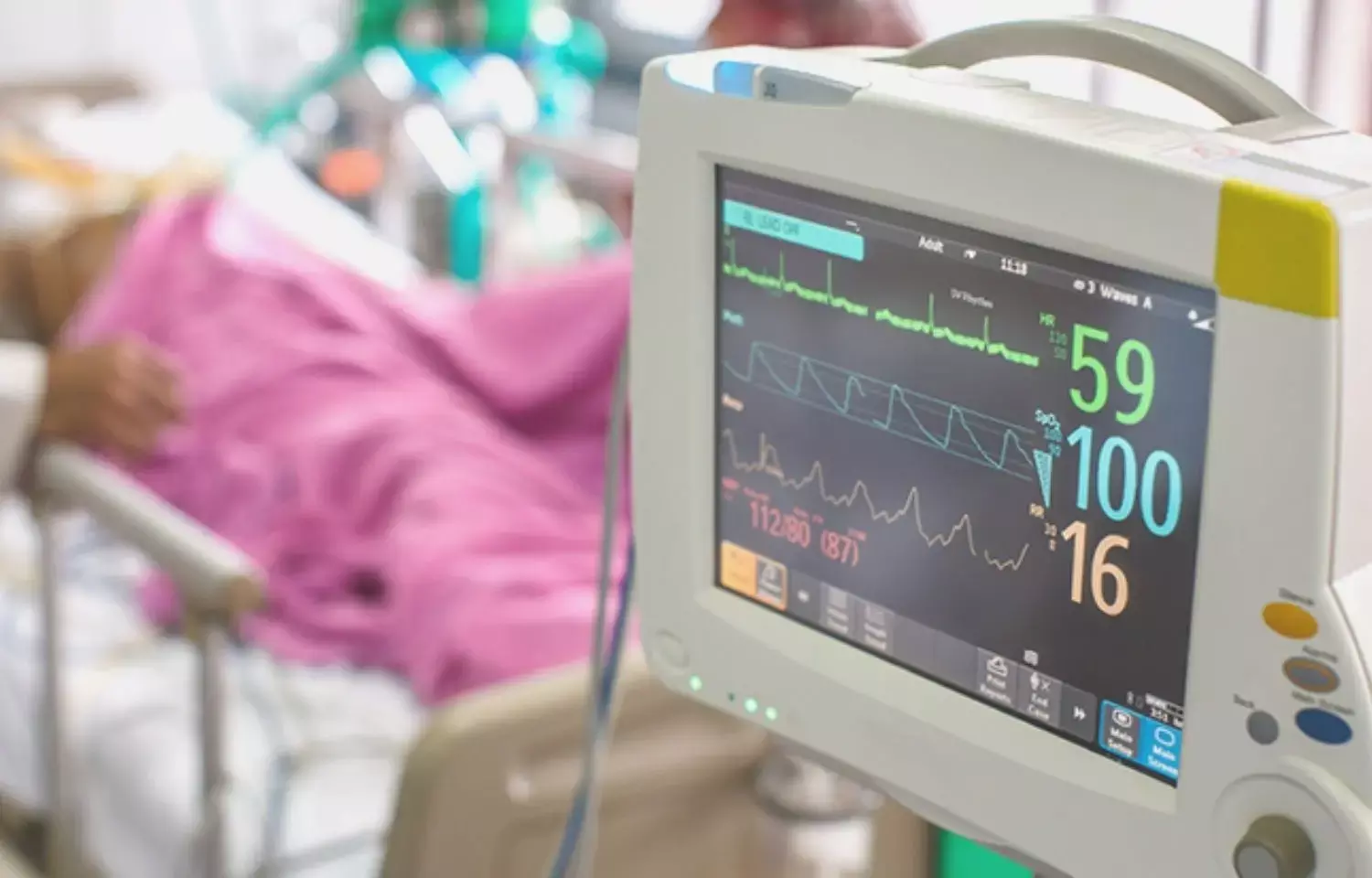- Home
- Medical news & Guidelines
- Anesthesiology
- Cardiology and CTVS
- Critical Care
- Dentistry
- Dermatology
- Diabetes and Endocrinology
- ENT
- Gastroenterology
- Medicine
- Nephrology
- Neurology
- Obstretics-Gynaecology
- Oncology
- Ophthalmology
- Orthopaedics
- Pediatrics-Neonatology
- Psychiatry
- Pulmonology
- Radiology
- Surgery
- Urology
- Laboratory Medicine
- Diet
- Nursing
- Paramedical
- Physiotherapy
- Health news
- Fact Check
- Bone Health Fact Check
- Brain Health Fact Check
- Cancer Related Fact Check
- Child Care Fact Check
- Dental and oral health fact check
- Diabetes and metabolic health fact check
- Diet and Nutrition Fact Check
- Eye and ENT Care Fact Check
- Fitness fact check
- Gut health fact check
- Heart health fact check
- Kidney health fact check
- Medical education fact check
- Men's health fact check
- Respiratory fact check
- Skin and hair care fact check
- Vaccine and Immunization fact check
- Women's health fact check
- AYUSH
- State News
- Andaman and Nicobar Islands
- Andhra Pradesh
- Arunachal Pradesh
- Assam
- Bihar
- Chandigarh
- Chattisgarh
- Dadra and Nagar Haveli
- Daman and Diu
- Delhi
- Goa
- Gujarat
- Haryana
- Himachal Pradesh
- Jammu & Kashmir
- Jharkhand
- Karnataka
- Kerala
- Ladakh
- Lakshadweep
- Madhya Pradesh
- Maharashtra
- Manipur
- Meghalaya
- Mizoram
- Nagaland
- Odisha
- Puducherry
- Punjab
- Rajasthan
- Sikkim
- Tamil Nadu
- Telangana
- Tripura
- Uttar Pradesh
- Uttrakhand
- West Bengal
- Medical Education
- Industry
Hospitalized dementia patients with pneumonia have better survival on invasive mechanical ventilation

USA: Patients with severe dementia who were hospitalized for pneumonia had better 30-day survival when treated with invasive mechanical ventilation compared to non-invasive mechanical ventilation, states a study published in the Annals of the American Thoracic Society. However, there was no benefit for 1-year survival, and the expenses were significantly greater.
A potentially life-saving procedure for critically ill patients is invasive mechanical ventilation. For people with advanced dementia, invasive mechanical ventilation (IMV) may be a hardship. Expensive end-of-life care frequently results in unnecessary treatment or poor care for the deceased. When certain patients are hospitalized near the end of their lives, noninvasive ventilation (NIV) may be a palliative strategy to prevent intrusive mechanical ventilation (IMV), added the researchers.
In the study, the researchers examined the results and expenses of treating hospitalized patients with severe dementia using noninvasive ventilation as opposed to invasive mechanical ventilation.
For this purpose, a retrospective cohort research was conducted among 27,483 participants in which 66 year and older hospitalized pneumonia patients who were given NIV (8.2%) or IMV (12.5%) between 2015 and 2017 were the subjects. If a person had received a Minimum Data Set (MDS) evaluation between 1 and 120 days prior to admission to the hospital that revealed severe dementia with 4 or more impairments in daily life, they were considered.
The 30-day mortality following treatment, the 1-year death rate, and the cost of medical care during the initial hospitalization and for up to a year post-discharge were the endpoints.
Matches for 96.3% of hospitalizations with the use of IMV were found by the researchers using a propensity-matched model comparing IMV with NIV utilizing clinical studies from the MDS, Chronic Condition Warehouse markers of chronic conditions, and prior use.
Key findings of the study:
Compared to IMV cases, NIV-matched patients had a higher 30-day death rate (58.7% vs. 51.9%), but this survival benefit did not last as 1-year mortality was marginally greater in IMV participants compared to NIV subjects (86.5% vs. 85.9%,).
Treatment expenses during a one-year period after matching were significantly greater for patients who received IMV (Mean $57,122) than NIV ($33,696).
Researchers come to the conclusion that, despite the lack of a 1-year survival benefit and increased healthcare expenses, invasive mechanical ventilation can increase survival rates in patients with severe dementia who also have pneumonia.
Our findings support an approach of using noninvasive ventilation to give families time to talk about the efficacy of invasive mechanical ventilation and define patients' values and goals, the researchers wrote. "Discussions regarding the role of hospitalization should occur in prehospital setups among individuals with severe dementia and their surrogates," they added.
REFERENCE
Teno JM, Sullivan DR, Bunker J, Gozalo P. Survival and Healthcare Costs with Invasive Mechanical Ventilation versus Noninvasive Ventilation in Patients with Dementia Admitted with Pneumonia and Respiratory Failure. Ann Am Thorac Soc. 2022 Aug;19(8):1364-1370. doi: 10.1513/AnnalsATS.202110-1161OC. PMID: 35143372; PMCID: PMC9353956.
Dr Kamal Kant Kohli-MBBS, DTCD- a chest specialist with more than 30 years of practice and a flair for writing clinical articles, Dr Kamal Kant Kohli joined Medical Dialogues as a Chief Editor of Medical News. Besides writing articles, as an editor, he proofreads and verifies all the medical content published on Medical Dialogues including those coming from journals, studies,medical conferences,guidelines etc. Email: drkohli@medicaldialogues.in. Contact no. 011-43720751


